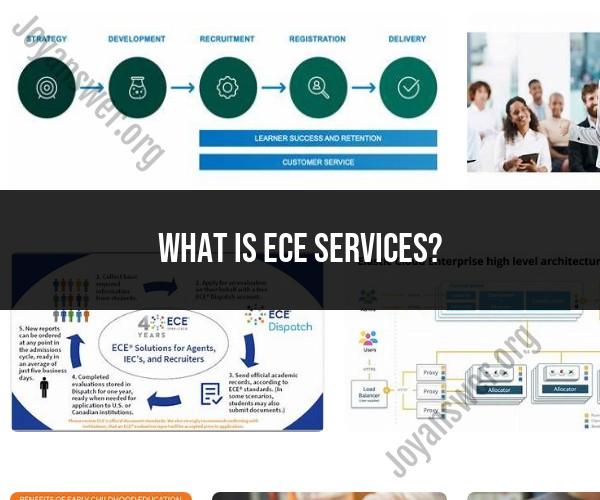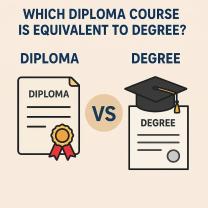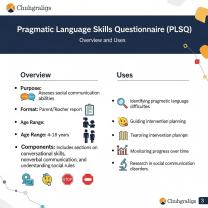What is ece services?
ECE services stand for Early Childhood Education services. These services are programs and resources designed to support the educational and developmental needs of young children, typically from birth to around age 8. Early Childhood Education encompasses a range of programs and initiatives that aim to provide a strong educational foundation for children during their formative years. Here are some key aspects of ECE services:
Preschool Programs: ECE services often include preschool programs for children around ages 3 to 5. These programs are typically focused on preparing children for formal schooling and may include activities that promote early literacy, numeracy, and social skills.
Childcare and Daycare: Many ECE services involve childcare or daycare facilities that provide a safe and nurturing environment for young children while their parents or guardians are at work. These facilities may also incorporate educational components to support early learning.
Early Intervention Services: ECE services can encompass early intervention programs designed to support children with developmental delays or disabilities. These programs aim to identify and address developmental challenges at an early age to help children reach their full potential.
Parent Education: ECE services often include resources and programs to educate parents and caregivers about child development, effective parenting strategies, and the importance of early learning. Parent involvement is considered a crucial component of a child's educational success.
Head Start and Early Head Start: These federal programs in the United States provide comprehensive early childhood education, health, and nutrition services to low-income children and their families. They focus on school readiness and family well-being.
Home Visiting Programs: Some ECE services involve home visiting programs where trained professionals visit families at home to provide guidance, support, and education to parents and caregivers. These visits can help promote child development and family well-being.
Public and Private Schools: Many public and private schools offer ECE services as part of their elementary education programs, providing structured learning experiences for young children.
Community Programs: Community-based organizations, nonprofits, and local government agencies often offer ECE services, such as playgroups, early literacy programs, and family support services, to enhance early childhood development.
The primary goals of ECE services are to foster a love of learning, support children's social and emotional development, prepare them for success in school, and address any developmental challenges or disparities. High-quality ECE services are recognized as essential for ensuring that children have a strong foundation upon which to build their future educational and life successes.
Demystifying ECE Services: What You Need to Know
ECE stands for Early Childhood Education. ECE services are programs and services that are designed to support the development of children from birth to age 8. ECE services can be provided in a variety of settings, including child care centers, preschools, and kindergarten programs.
Understanding Early Childhood Education (ECE) Programs
ECE programs typically include a variety of activities and experiences that are designed to help children develop in all areas, including their physical, social, emotional, and cognitive development. ECE programs often focus on the following:
- Language and literacy development: ECE programs help children develop their language and literacy skills by providing them with opportunities to listen to stories, read books, and engage in other language-rich activities.
- Cognitive development: ECE programs help children develop their cognitive skills by providing them with opportunities to learn about the world around them through play, exploration, and problem-solving activities.
- Social and emotional development: ECE programs help children develop their social and emotional skills by providing them with opportunities to interact with other children and adults in a safe and supportive environment.
- Physical development: ECE programs help children develop their physical skills by providing them with opportunities to engage in physical activity, such as running, jumping, and playing sports.
Benefits of ECE Services for Children's Development
ECE services can have a number of benefits for children's development. Studies have shown that children who participate in ECE programs are more likely to succeed in school and in later life. ECE programs can also help children to develop important social and emotional skills, such as self-control and empathy.
Here are some of the specific benefits of ECE services for children's development:
- Improved academic achievement: Children who participate in ECE programs are more likely to succeed in school. They are more likely to read on grade level by third grade and are more likely to graduate from high school.
- Enhanced cognitive development: ECE programs help children to develop their cognitive skills, such as problem-solving, critical thinking, and creativity.
- Improved social and emotional development: ECE programs help children to develop their social and emotional skills, such as self-control, empathy, and cooperation.
- Reduced risk of problem behaviors: ECE programs can help to reduce the risk of problem behaviors in children, such as aggression and delinquency.
- Improved health and well-being: ECE programs can help to improve the health and well-being of children by providing them with nutritious meals, opportunities for physical activity, and access to health care.
Conclusion
ECE services can have a number of benefits for children's development. They can help children to develop academically, cognitively, socially, emotionally, and physically. ECE services can also help to reduce the risk of problem behaviors and improve children's health and well-being.
If you are considering enrolling your child in an ECE program, there are a few things you can do to choose the right program for your child's needs:
- Visit different programs: Visit different ECE programs and talk to the staff. This will help you to get a feel for the program's philosophy and teaching methods.
- Ask about the program's curriculum: Ask about the program's curriculum and how it is designed to support children's development in all areas.
- Talk to other parents: Talk to other parents who have children enrolled in ECE programs. They can give you their feedback on the programs and help you to make a decision.
ECE services can be a valuable investment in your child's future. By choosing the right program and supporting your child's learning at home, you can help your child to succeed in school and in later life.













